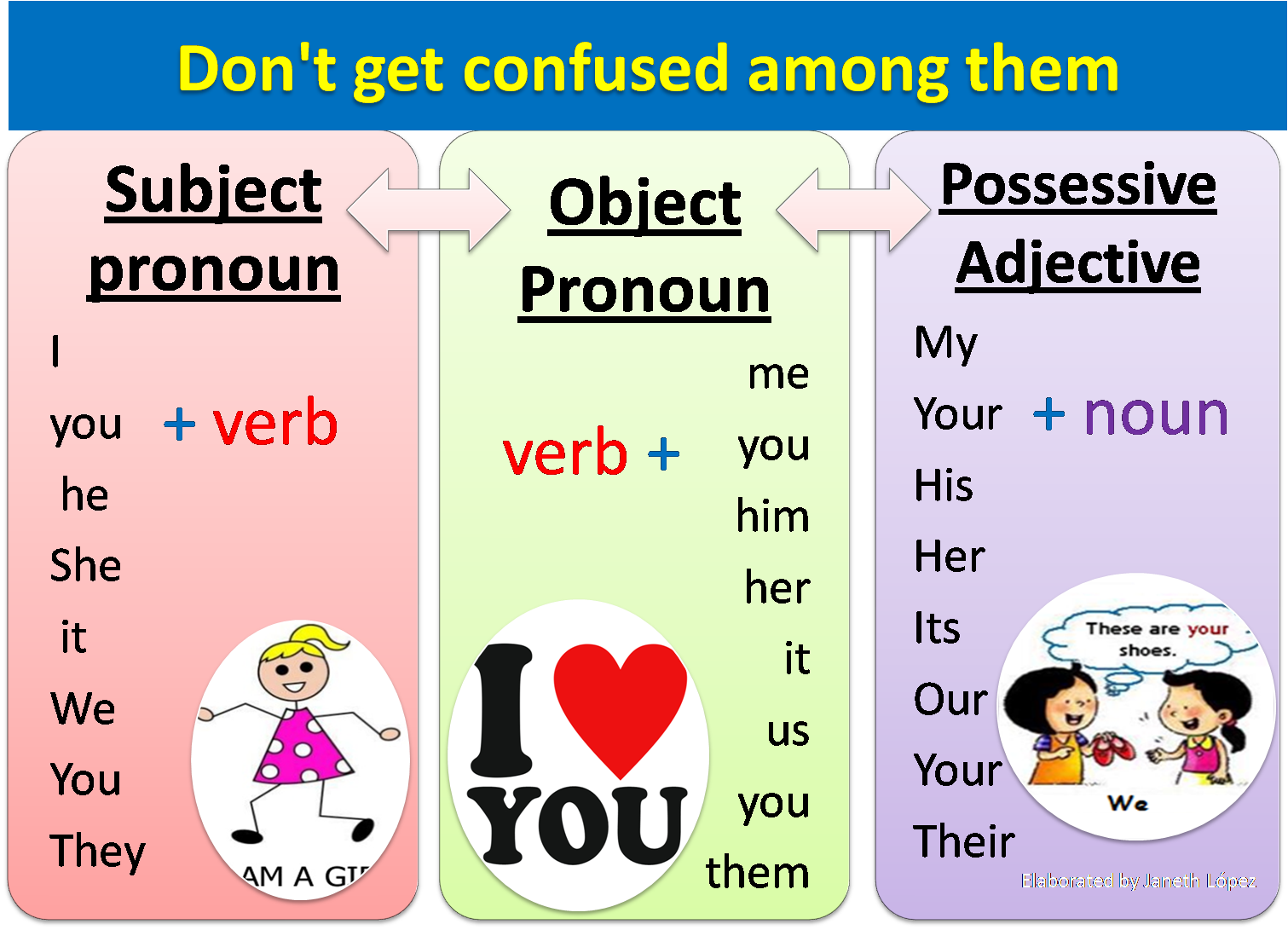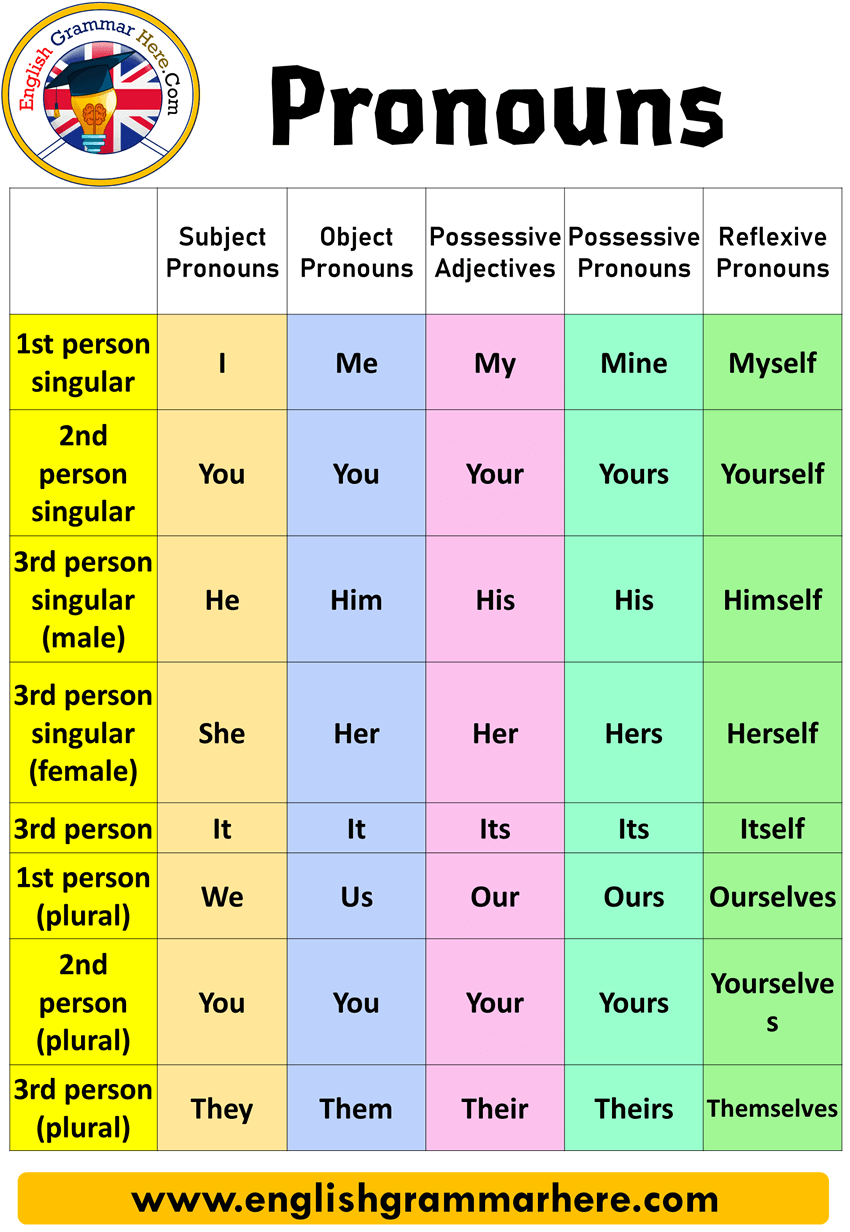

Historically, Middle English and Early Modern English retained the T–V distinction the second person pronoun had separate singular/familiar and plural/formal forms with subject and object forms of both.

The English personal and interrogative pronouns have the following subject and object forms: įor example, the English object pronoun me is found in "They see me" (direct object), "He's giving me my book" (indirect object), and "Sit with me" (object of a preposition) this contrasts with the subject pronoun in " I see them," " I am getting my book," and " I am sitting here." Object pronouns in English take the objective case, sometimes called the oblique case or object case. Object pronouns contrast with subject pronouns.

In linguistics, an object pronoun is a personal pronoun that is used typically as a grammatical object: the direct or indirect object of a verb, or the object of a preposition. Personal pronoun that is used typically as a grammatical object


 0 kommentar(er)
0 kommentar(er)
